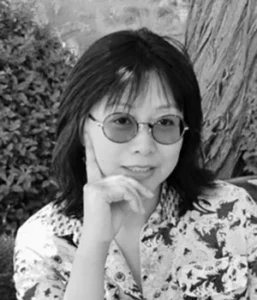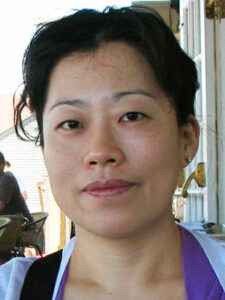UWM’s Center for International Education (CIE), a Title VI National Resource Center (NRC) as designated by the U.S. Department of Education, is supporting the Global Studies Research Fellows Program (GSFR) for the 2022-2026 grant cycle.
The GSRF is designed to support global research at UWM. Global research has been a strong feature of the profile of UWM faculty, and we are proud to offer support that encourages more opportunity and collaboration on campus. Meet our current fellows!

Xin Huang
Associate Professor, Department Chair, Women’s & Gender Studies
Curtin Hall 525
huang32@uwm.edu
Research Interests
Gender and Life Narrative:
Born in Mao era China, I write on the transformation of ideas about gender and sexuality in the Mao and post-Mao eras through archiving and analyzing oral and photo life narratives. My book (SUNY Press 2018) The Gender Legacy of the Mao Era traces the various ways the gender legacy of the Mao era manifests itself in women’s lives in contemporary China. Currently I am working on a book manuscript Picturing Self: Gender and Photo-based Life Narrative. It examines the relationship between the visual/bodily construction of gendered self and photo-based life narratives (PBLN). It explores what it means to construct a life photographically, and in what ways PBLN opened opportunities for contesting and transforming master scripts of gender, and for narrating her-story.
Language and Knowledge Construction:
As a translator and scholar writing about China in English, I have been reflecting on my intellectual journey as a travelling feminist scholar, and the linguistic politics in feminist knowledge construction and circulation. In my forthcoming article “Writing With An Accent: Xenophone Scholars and Feminist Knowledge Construction”, I demonstrate that moving in-between languages and intellectual traditions, the accented writings produced by travelling scholars can serve as important modes and foci of feminist knowledge production and have the potential to produce “xenophone” scholarship that contributes to and transform feminist knowledge production. In a forthcoming book chapter “Funü: The Onion Peeling Stories”, I unpeel the multiple layers of the women’s liberation project of the Mao era, and showed that lesbians have been the familiar strangers of funü whose “comradeship” needs to be recognized, and that a queer engagement would contribute to the critical assessment and future development of Chinese socialist feminisms. The chapter also exposes the Euro-American centralism in feminist theory building and curriculum, traces the exchange, translation, and transplantation of feminist ideas between China and aboard, and underlines the importance of a reciprocal, ethical, and truthful engagement between different feminisms in feminist imagination.
Reproductive Justice and the Global Other (Non) Subject:
My new research project “Reframing the “Missing” in China: Towards an Epistemology of the Global Other (Non) Subject” examines how global struggles on human reproduction intersect with modern biopolitical governance around the world and the neoliberal logic. It comprehends the ontological and corporeal interconnections between the alive and the dead, the ways the one-child who survived is imprinted with those absent, and the gender and sexual implications for this child of all in One. I am especially interested in how those who “are not (or not supposed to) be in this world” shape gender and sexual landscape today and the imagination of the future.
Fall 2023 Global Fellows Lecture


Hyejin Yoon
Associate Professor, Geography
Bolton Hall 462
yoon3@uwm.edu
Research and Teaching Interests
My research interests center on how economic and non-economic factors affect regional economic development and flows of labor, products and technology. I am particularly interested in investigating how non-economic factors, such as cultural background, ethnic differences, norms and institutions, can influence an individual firm’s location and behavior in various ways. My research interests are evolving towards differentiated strategies for regional economic development through co-operations among different agents, such as individual businesses, research institutions and local governments. In particular, my research specialties lie in transnational mobility of highly-educated people and cultural products under globalization (global supply chain, global value chain and global production network).
Spring 2024, Global Fellows Lecture
TBD